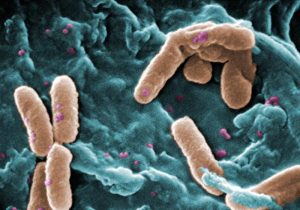Shionogi & Co., Ltd. recently announced that the U.S. Food and Drug Administration’s (FDA) Antimicrobial Drugs Advisory Committee voted to recommend approval of the investigational antibiotic cefiderocol for the treatment of complicated urinary tract infections (cUTI), including pyelonephritis, in patients with limited or no alternative treatment options. The Advisory Committee voted 14 to 2 that Shionogi provided substantial evidence about the efficacy and sufficient evidence of the safety of cefiderocol as part of its New Drug Application (NDA).

“We are pleased with the positive recommendation for the approval of cefiderocol for the treatment of cUTI. We appreciate the conscientious review of our data by the committee members and will continue to work closely with the FDA as it completes the review of our submission,” said Isao Teshirogi, Ph.D., president and CEO. “Patients with cUTIs caused by Gram-negative pathogens continue to face a serious challenge with high morbidity and mortality rates. If approved, we believe cefiderocol could help address a significant unmet need in an area with limited treatment options to fight these life-threatening infections.”
The Advisory Committee provides the FDA with independent advice and recommendations. The FDA is not bound by the committee’s guidance, but takes its recommendation into consideration when reviewing investigational medicines. Cefiderocol was designated as a Qualified Infectious Disease Product (QIDP) by the FDA. Under this designation, cefiderocol was granted Fast Track status for its potential as a new antibiotic to treat serious or life-threatening conditions and to address unmet medical needs. The assigned action date is November 14, 2019 under the Prescription Drug User-Fee Act (PDUFA).
If approved, cefiderocol will be marketed under the brand name FETROJA®.
Cefiderocol is a siderophore cephalosporin with a novel mechanism for penetrating the outer cell membrane of Gram-negative pathogens including multidrug-resistant strains. It has a unique ability to overcome all three major mechanisms of carbapenem resistance (porin channel alterations, beta-lactamase inactivation, and efflux pump overproduction). Cefiderocol binds to ferric iron and is actively transported into bacterial cells through the outer membrane via the bacterial iron transporters, which function to incorporate this essential nutrient for bacteria. In addition, cefiderocol can also enter cells by passive diffusion through porin channels and is stable against all known classes of beta-lactamases, including both the metallo- and serine-beta-lactamases. These mechanisms allow cefiderocol to achieve higher concentrations in the periplasmic space where it can bind to penicillin-binding proteins and inhibit cell wall synthesis in the bacterial cells. Data from multinational surveillance studies for cefiderocol demonstrated potent in vitro activity against a wide spectrum of Gram-negative pathogens including carbapenem-resistant Acinetobacter baumannii (A. baumannii), Pseudomonas aeruginosa (P. aeruginosa), Enterobacteriaceae, and Stenotrophomonas maltophilia (S. maltophilia). Cefiderocol has poor in vitro activity against Gram-positive or anaerobic bacteria. The clinical significance of in vitro data is unknown.


2 thoughts on “Investigational antibiotic, Cefiderocol, receives U.S. FDA Advisory Committee recommendation for approval to treat complicated UTIs”